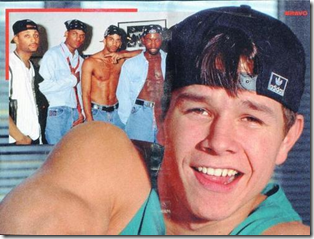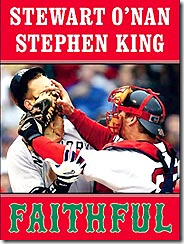I was once a bank teller, waiting on Mark Wahlberg, writing sonnets, and battling my idiot manager.
/Among the many jobs that I have had over the course of my life, I was once a teller at a bank for South Shore Bank in Randolph, Massachusetts, working in the drive-up window whenever possible.
Mark Wahlberg actually banked with us back when he was known as Marky Mark and couldn’t keep his pants up on stage. Over the course of about 18 months, I waited on him several times. Despite his overnight success, Wahlberg and I are the same age, so we always had things to talk about while I processed his transactions.
I chose to work in the drive-up window whenever possible because it was the busiest station in the bank, so it was the best way to avoid boredom.
It was also the most universally despised station in the bank, so my coworkers were happy to let me have it. But I was working two jobs at the time – more than 18 hours a day – so I didn’t have much entertainment in my life. Anything I could do to keep my mind active was a plus.
At one point, the high customer volume of the drive-up created a problem for me. When bank tellers reconcile their drawers at the end of the night, they are allowed to be plus or minus a certain amount of money.
A small amount, of course, but mistakes happen.
Things may be different today with the ubiquity of computers, but back then, we were working on more primitive teller machines, so errors were common.
My drawer was consistently off by more than my coworkers – not by much, but enough to be noticeable – so my manager called me into his office one day to reprimand me and threaten my job.
I pointed out that if I was processing 500 transactions a day and my coworkers were only processing 50 transactions (which was about the ratio at the time), it was only natural that I would make more errors.
He disagreed. He was an idiot.
Even with the high volume of the drive-up, I found a lot of time to write while sitting there, waiting for customers. I would work on short stories, poems, and letters to friends, for which I was also later reprimanded.
Even though I had no customers when I was writing, I was told that I should look ready at any moment to help a customer and should therefore not have my head down, scribbling on paper.
It wasn’t the easiest time in my life. It was also the time in my life when I was sharing a room in the home of a family of Jehovah Witnesses with their pet goat while awaiting trial for a crime I did not commit.
It was also during this time that I was the victim of an armed robbery that would result in years of post traumatic stress disorder.
My idiot manager was annoying, but he was the least of my troubles.
When my wife sent me photos of my son working in the pretend bank at the local library, and specifically in the pretend drive thru, it sent shivers down my spine.
Rightfully so.





